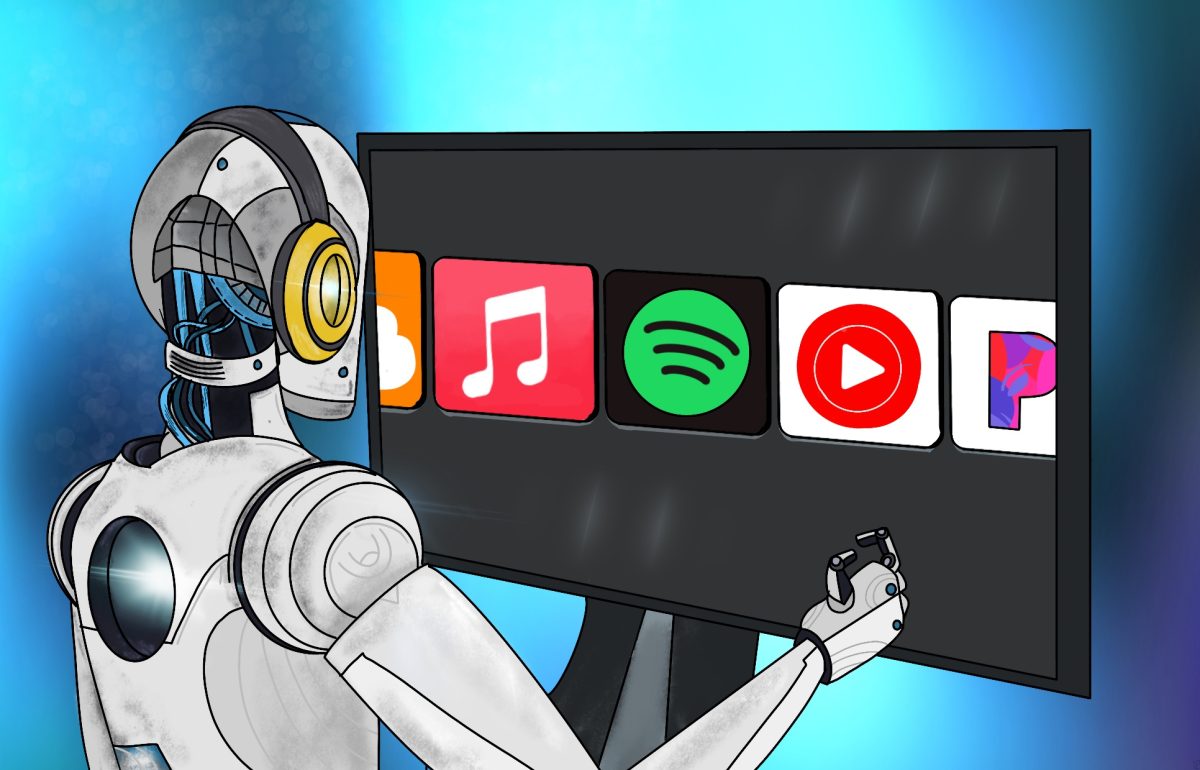Every December, Spotify users eagerly anticipate their Spotify wrapped—a detailed summary of their year’s listening habits, from their top artists to most-played songs. This annual tradition creates a tense yet exciting atmosphere of anticipation as users share their Wrapped with friends. However, the Spotify Wrapped in 2024, a rather underwhelming year, left many feeling disappointed. This year was abruptly overtaken by generative AI Spotify in all aspects whether it be from creating playlists or making the final Spotify wrapped for the users, preventing a sense of personalization in someone’s playlist. As a whole, listening to music is an experience that is individual and constitutes to who they are and what they like. Crafting a playlist allows users to reflect their evolving emotions and to personally resonate to music. Yet, with the recent usage of artificial intelligence in music platforms, the personal touch of listening to music has disappeared as there is no emotional influence used in the craft of drafting a music playlist. Music platforms should be banned from implementing AI in their platforms as it devalues the work of artists and prohibits listeners from being able to have their own creativity in their music, ultimately leading to an ethical dilemma. Thus, it is clear how the growing reliance on AI by music platforms can undermine the value of artistic expression and diminishes listeners’ ability to connect meaningfully with their music. To preserve music’s cultural and emotional significance, platforms should reevaluate and limit their usage of AI.
Music is more than just a sound of creativity, it’s an amalgamation of a myriad of different cultures and histories. The culture of music is one that can speak to all humans because it allows people to communicate with one another and feel connected to multiple different cultures. The creative aspect of music is what attracts people to using music platforms such as Apple Music and Spotify because it allows people to craft their own individual playlists that consist of different songs based on their preference and it allows them to mix together different genres of music to fit their taste. Now that these platforms have begun to implement artificial intelligences, the lack of true emotion by AI fails to allow its functionality to fit the creative aspect of a user’s listening experience. It doesn’t understand the personal aspect as to why people like listening to the music that they listen to as an AI generated playlist might prioritize algorithmic trends over niche tracks that make it harder for users to feel a genuine connection to their music. In fact, there is research that shows that Spotify creates their own music generated by AI under the name of fake artists, as shown in studies by Document Journal, bringing up an ethical controversy. Not only does it devalue the work of artists that already exist, but it also falsifies the listening experience of listeners by giving them fake music that has not been made by humans. This fails to grant users the experience of listening to true music. Therefore, when AI goes to make generated playlists for its users, it stops users from having a diverse listening experience and makes people have comparable playlists which takes away from the personal aspect of listening to music.
Listeners feeling connected to their music is not the only facet of music that constitutes to its importance, but it’s also that musical artists themselves are able to put their heart and soul into crafting songs that allows them to utilize the world of creativity to express themselves and who they are. Yet, music platforms using AI takes away the balance of creativity and self-expression which devalues the work of artists. In point of fact, a Georgetown article written by political scientist Daryl Lim explained how various, renowned artists such as Billie Eilish have criticized the use of AI as it not only disrupts the creativity when an artists makes their own music but it also decreases the monetary earnings of an artist. As the music industry has provided such a strong career for many talented artists to not only be innovative but also make a living, AI simply degenerates the process of music composition. This can be risky for artists who depend on music-making as a career and also disrupts the quality of music for users. It’s only clear how instead of putting thought into overseeing the functions of these platforms, it generates playlists that fail to do justice to the work of an artist and devalues their work.
Ultimately, it is imperative that the usage of artificial intelligence by music platforms should be banned not only because it devalues the creativity of music in a listener’s experience, but because it tests the value of musical artists. Instead, these platforms should continue the old practice of allowing users to create their own playlist to enjoy their listening experience without incorporating this pervasive option of AI generated playlists for users.






































